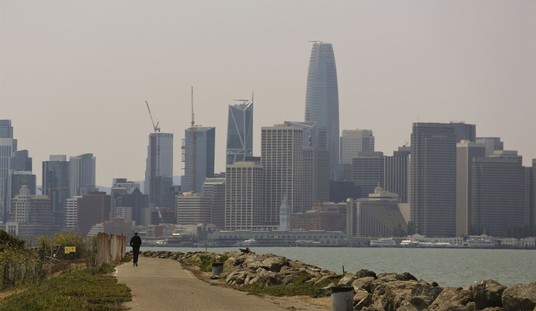Flipping through the cable news offerings today, I saw a number of different stories which involved the upcoming midterms. Nearly each one included some variant of the phrase, the election is barely two weeks away! But in reality, that’s not really true, is it? The election is already well underway, and for an increasing number of people it’s already a done deal. 35 states have early voting with no need to explain why you won’t be able to make it to the polls on November 4th. Three states – Oregon, Washington, and Colorado – don’t even have an election day, with all the ballots being sent in ahead of time by mail. For an extremely high profile example, Barack Obama will cast his ballot today.
Isn’t this a problem? John Fund has a great article at National Review on this subject.
There’s no doubt that many people in our increasingly mobile and hectic society want voting to be as easy and convenient as buying fast food. But too much of anything can be bad — just ask someone who has gorged on drive-thru burgers and fries. A new poll by the Huffington Post, conducted by YouGov, found that nearly half of adults say they vote before Election Day at least sometimes, and a third say they do it often. We should listen to what cautionary voices are telling us before we redefine ourselves as a nation of convenience voters and abandon one of the only remaining occasions on which Americans come together as a nation to perform a collective civic duty.
The notion of Election Day isn’t just a tradition; it’s in the Constitution. Article II, Section 1 states that “Congress may determine the Time of choosing the Electors, and the Day on which they shall give their votes; which day shall be the same throughout the United States.” Congress codified this requirement in 1872 by setting a uniform presidential election date. But in a rare bow to the notion of federalism, today’s courts have nonetheless been reluctant to invalidate state laws that go against this dictate. In 2002, a panel of the U.S. Court of Appeals for the Ninth Circuit upheld Oregon’s vote-by-mail law because of “a long history of congressional tolerance” toward absentee voting. It rejected arguments from the Voting Integrity Project that Oregon’s effective end to voting in person represented “the difference between the exception to the rule and the exception that swallows the rule.”
Fund cites a number of studies which highlight problems with early voting. While it’s true that some absentee ballots are always required – particularly for the military and those who will be traveling on election day – swamping the system with remote voting counts has already caused issues. For one, the cost of elections, as well as the complexity of managing the ballots, has gone up. And campaigns have to adjust in a very non-traditional way as to how to reach the voters with their message.
Second, there is the issue of low information voters becoming, in effect, no information voters in terms of any late breaking news. Fund lists a number of examples where huge news has broken late in the cycle which might cause voters to reconsider their decisions. But once the ballot has been placed in the mail, it’s too late. How is this benefiting anyone who could otherwise go down to the polling station on election day and make their choice?
Finally, there is the issue of voter fraud. In Colorado, their amazingly lax system allows ballot harvesters to go door to door and collect the votes. (The word “harvesters” in relation to ballots should be enough to send you running.) How many of these workers bees are out there and who is supervising them? I suppose we are to assume that they have miraculously found an army of people with no ideological leanings or party loyalty of any kind who want a job collecting ballots? (Yes… they get paid to do this. Sometimes based on the number they collect.) As Fund notes, this is a situation ripe for exploitation.
All mail-in ballots in Colorado will be ripe for abuse because “ballot harvesters” are allowed to go door-to-door and collect up to ten ballots with no effective enforcement if they collect more and deliver them at other times. Amazingly, these operatives can be paid based on the number of ballots they collect. The potential for harvesters to pressure voters to turn over ballots, open ballot envelopes, alter ballots, or even throw them away is real.
With apologies to the Grateful Dead, too much of everything isn’t always really just enough. And too much early voting suggests a raft of problems which we’re not prepared to deal with. New York is still amazingly able to manage nearly all of its voting on a single Tuesday. For once, maybe they could serve as an example to others.








Join the conversation as a VIP Member